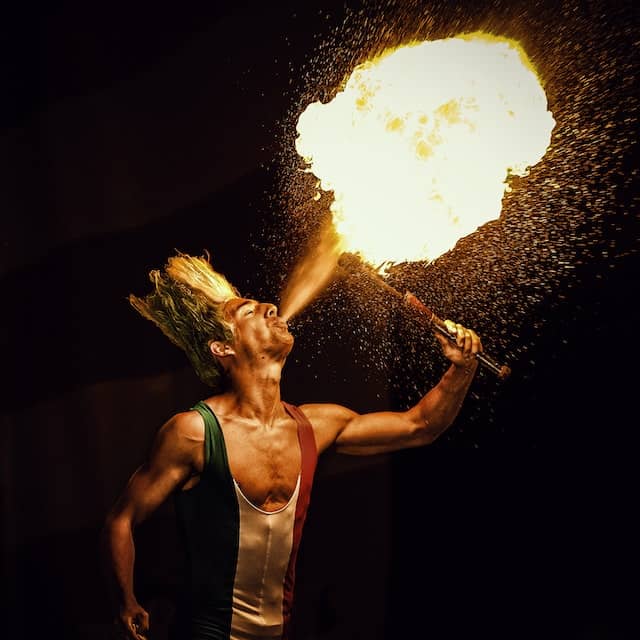What is the irony in Lord of the Flies? Lord of the Flies, written by William Golding, is a classic novel that explores the theme of the inherent evil in human nature. The story is set on a deserted island, where a group of young boys is stranded without adult supervision. The boys descend into savagery and chaos as they struggle to survive and establish a society. One of the most significant literary devices used in the novel is irony. This article will explore the irony in Lord of the Flies.
What is the irony in Lord of the Flies? (Answer)
The most significant irony in Lord of the Flies is dramatic irony. Dramatic irony is when the audience knows something that the characters in the story do not. In the case of Lord of the Flies, the irony is that grownups are afraid. They can’t discuss and agree on things. That is the reason the boys are trapped on an island. If adults could discuss their disagreements, there would have been no war, and the boys would be safe at school.
Throughout the novel, there are several instances where the boys try to recreate the adult world they left behind. They attempt to establish rules and order, elect a leader, and build shelters. However, their attempts are ultimately futile, as they lack the maturity and experience necessary to maintain a functional society. The irony is that the boys are stranded on the island because the adult world failed to provide them with the needed guidance and support. The very society they are trying to recreate is the same one that failed them.
Another example of dramatic irony in Lord of the Flies is the behavior of the boys themselves. The boys are initially excited about the prospect of being on a deserted island without any adults. They are free from rules and responsibilities and revel in their newfound freedom. However, as time passes, they begin to realize the consequences of their actions. They are unable to build shelters, gather food, or maintain order. They are forced to confront the harsh realities of survival, which they are ill-equipped to handle. The irony is that the very thing they thought they wanted – freedom from adult supervision – is the same thing that leads to their downfall.
What is the irony at the end of Lord of the Flies?
The irony at the end of Lord of the Flies lies in Golding’s portrayal of the naval officer who rescues the boys. Despite being a symbol of rescue and civilization, the officer himself is part of a world engaged in war and chaos. While he may represent order and authority, his presence on the island only highlights the inherent savagery and darkness within humanity. The boys, who have descended into brutality and madness during their time on the island, are rescued by a figure who is ostensibly civilized but is ultimately part of a society plagued by violence and destruction. This irony suggests that even those who are meant to protect and uphold civilized values can be corrupted by the same forces they seek to contain.
Why does Golding use irony in Lord of the Flies?
Golding uses irony in Lord of the Flies to emphasize the tragedy his characters experience. Through various instances of verbal, situational, and dramatic irony, he highlights the profound disconnect between appearances and reality on the island. The boys’ initial excitement and anticipation for their newfound freedom quickly turns into chaos and savagery, contrasting sharply with their initial attempts at civilization. The ironic contrast between their desire to be rescued and their descent into barbarism underscores the tragic nature of their situation. By employing irony, Golding exposes the inherent flaws in human nature and heightens the impact of his characters’ downfall, making it all the more poignant.
What are two examples of dramatic irony in Lord of the Flies?
Two examples of dramatic irony in Lord of the Flies can be found in Jack’s actions. Firstly, it is ironic that Jack, initially presented as the responsible and disciplined leader of the choir boys, becomes the first to ignore the rules and his duty to maintain the signal fire. This is dramatic irony because, at the beginning of the story, Ralph states that they need to keep a signal fire burning to increase their chances of being rescued. However, as time passes, Jack becomes increasingly obsessed with hunting and power, leading him to neglect his responsibilities, ultimately contributing to their loss of civilization. Secondly, it is also ironic that Jack’s obsession with hunting eventually leads him to become hunted himself. In his quest for dominance over nature and other boys, he loses touch with reason and resorts to violence. Ultimately, this obsession drives him away from Ralph’s group and into a state of savagery, where he becomes vulnerable to both physical danger and his own deteriorating mental state.
Conclusion
In conclusion, Lord of the Flies is a novel that is rich in irony. The most significant irony in the story is dramatic irony, which highlights the failures of the adult world and the consequences of unchecked freedom. The novel serves as a cautionary tale about the inherent evil in human nature and the importance of maintaining order and structure in society.
